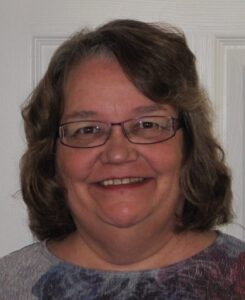Jacque Van Houten, Leveraging the Power of the Language and Intercultural Can-Dos; and Donna Clementi, Planning with the End in Mind: Performance toward Proficiency.
Fall 2018 LaTeS, November 3:
Leveraging the Power of the Language and Intercultural Can-Dos
Presented by Jacque Bott Van Houten (Jefferson County Public Schools; past president of ACTFL, the National Network for Early Language Learning, and the National Council of State Supervisors for Languages)
Click here for Dr. Van Houten’s PPT [PDF]
Description: As language educators, we know from research that certain practices have a positive impact on students’ progress to become more proficient language users. But these practices, such as maintaining an immersive language environment, teaching grammar in context, and embedding culture and cultural interaction with native speakers are challenging for many teachers. So, too are consistently offering opportunities for personalized learning and organizing Project-based Language Learning scenarios around meaningful, real-life issues.
Believe it or not, implementing the NCSSFL-ACTFL Language and Intercultural Communication Can-Do statements and their accompanying reflection tool provides a pathway to help teachers develop strategies that will improve their instructional effectiveness and develop learners’ intercultural competence.
The original NCSSFL-ACTFL Can Do statements for Language simplified and clarified goal setting for learning and instruction. The revised version provides a tool that helps everyone—teachers and learners—better understand language progression across the proficiency levels. The new Intercultural Communication Can-Dos reframe how we think about unit organization and lead us in a natural way toward a more PBL-friendly curriculum.
Participants in this workshop explored the new Can-Dos, the changes and the new format, the theories upon which they are based, and the examples created for diverse learners. They engaged in activities that increase their knowledge of the ACTFL proficiency scale and how it can be used to assess what learners know about culture through their use of language. They used the new document to inform their level expectations, unit planning and daily lessons. Finally, they created a unit overview and supported it by developing an activity based on an authentic resource. This workshop reflected what the powerful new Can-Dos can mean for teachers and their learners!
 Bio:Jacque Bott Van Houten is a leader in the development of national self-assessment tools for language and interculturality, such as LinguaFolio and the NCSSFL-ACTFL Can-Do statements for Language and Intercultural Communication. Currently world language Specialist for Jefferson County Public Schools (Louisville, KY), Jacque taught French in K12 schools and university, and for 14 years was World Language consultant at the Kentucky Department of Education. She has served as president of ACTFL, the National Network for Early Language Learning and the National Council of State Supervisors for Languages (NCSSFL). She has a BA, MAT from the University of Louisville, an MA from the University of Cincinnati, and a Ph.D. in Educational Leadership from Miami University of Ohio. Jacque was awarded the French government’s Palmes Académiques, ACTFL’s Florence Steiner award for Leadership in K12 Foreign Language Education, and Pearson’s State Supervisor of the Year.
Bio:Jacque Bott Van Houten is a leader in the development of national self-assessment tools for language and interculturality, such as LinguaFolio and the NCSSFL-ACTFL Can-Do statements for Language and Intercultural Communication. Currently world language Specialist for Jefferson County Public Schools (Louisville, KY), Jacque taught French in K12 schools and university, and for 14 years was World Language consultant at the Kentucky Department of Education. She has served as president of ACTFL, the National Network for Early Language Learning and the National Council of State Supervisors for Languages (NCSSFL). She has a BA, MAT from the University of Louisville, an MA from the University of Cincinnati, and a Ph.D. in Educational Leadership from Miami University of Ohio. Jacque was awarded the French government’s Palmes Académiques, ACTFL’s Florence Steiner award for Leadership in K12 Foreign Language Education, and Pearson’s State Supervisor of the Year.
Spring 2018 LaTeS, April 21:
Planning with the End in Mind: Performance Towards Proficiency
Presented by Donna Clementi (Lawrence University)
Click here for Dr. Clementi’s PPT [PDF]
Description: Thoughtfully designed performance assessments provide evidence and feedback on learners’ cultural understandings and abilities to communicate in real-world situations with competence and confidence in the language they are learning. Learners will be more successful in demonstrating their communication skills if the performance tasks they complete are cognitively engaging, intrinsically interesting, and personally relevant. The principles of Backward Design guide teachers in the selection of purposeful learning experiences to build learners’ communication skills and cultural understandings.
Beginning with the end in mind, in this workshop participants deconstructed sample performance assessment tasks to identify the knowledge and skills that learners are expected to demonstrate. They discussed how closely the tasks reflect real-world contexts where learners need to use the target language, and criteria to use in evaluating learners’ performances. The participants then compared the criteria they generated to the model rubrics that were used for the sample performance tasks. They evaluated sample performances using the criteria from the sample rubrics and additional criteria suggested to enhance the evaluation of the task. They discussed the degree to which the rubrics successfully reflect high quality performance, and brainstormed the kinds of activities that will prepare learners to successfully complete the final performance tasks. After analyzing the model performance assessment tasks, participants developed standards-based performance assessment tasks and rubrics for their own teaching context.
 Bio: Donna Clementi, PhD, is currently a lecturer in World Language Methods at Lawrence University, Appleton, WI. She taught French and was the World Languages Program Leader in the Appleton Area School District (WI) for thirty-three years. She is a frequent workshop presenter and consultant nationally on best practices in the teaching of World Languages. Since 2006, she has led the CARLA Summer Institute on Second Language Assessments at the University of Minnesota. She is co-author of Keys to Planning for Learning: Effective Curriculum, Unit, and Lesson Design Second Edition (ACTFL 2017). Clementi’s honors include: ACTFL’s Florence Steiner Award for K-12 Leadership in Foreign Languages (2000); Distinguished Foreign Language Educator Award from the Wisconsin Association for Language Teachers (2002); Supervisor of the Year Award by the National Association of District Supervisors of Foreign Languages (2004); Les Palmes Académiques from the French government (2008); Founders Award from the Central States Conference on the Teaching of Foreign Languages (2012).
Bio: Donna Clementi, PhD, is currently a lecturer in World Language Methods at Lawrence University, Appleton, WI. She taught French and was the World Languages Program Leader in the Appleton Area School District (WI) for thirty-three years. She is a frequent workshop presenter and consultant nationally on best practices in the teaching of World Languages. Since 2006, she has led the CARLA Summer Institute on Second Language Assessments at the University of Minnesota. She is co-author of Keys to Planning for Learning: Effective Curriculum, Unit, and Lesson Design Second Edition (ACTFL 2017). Clementi’s honors include: ACTFL’s Florence Steiner Award for K-12 Leadership in Foreign Languages (2000); Distinguished Foreign Language Educator Award from the Wisconsin Association for Language Teachers (2002); Supervisor of the Year Award by the National Association of District Supervisors of Foreign Languages (2004); Les Palmes Académiques from the French government (2008); Founders Award from the Central States Conference on the Teaching of Foreign Languages (2012).

